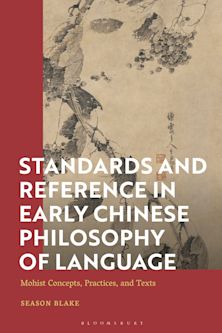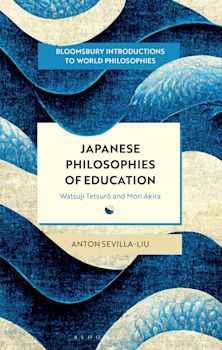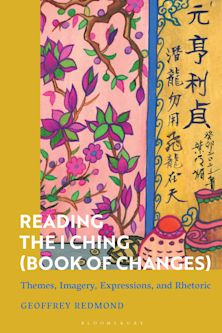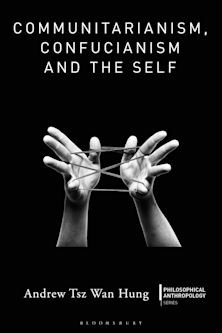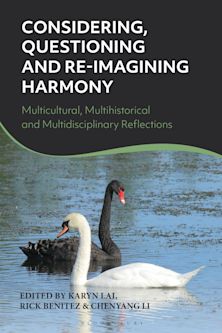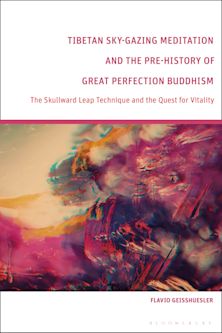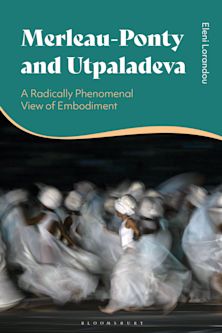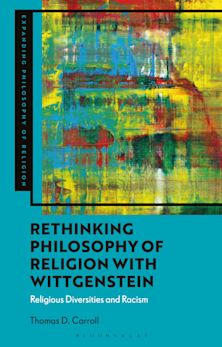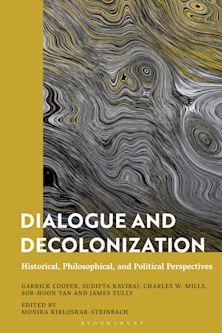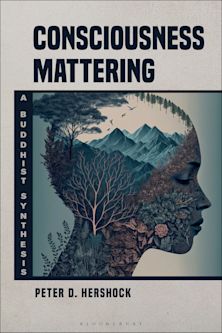- Home
- ACADEMIC
- Philosophy
- Asian Philosophy
- Introduction to Eastern Thought
Inspection copy added to basket
This title is available for inspection copy requests.
Please note our inspection copies are only available in ebook format, and are fulfilled by VitalSource™. If an ebook isn’t available, please visit our inspection copy page for more information.
Buy from Bloomsbury eTextBooks
You are now leaving the Bloomsbury Publishing website. Your eBook purchase will be with our partner https://www.vitalsource.com.
Your credit card statement will show this purchase originating from VitalSource Technologies. They will also provide any technical assistance you might require.
You must sign in to add this item to your wishlist. Please sign in or create an account
Description
Marietta Stepaniants' introductory text allows a distinctively Eastern way of thinking to come forth. Four interpretive essays open the book showing how Indian, Chinese and Islamic traditions responded to these questions: How did philosophy arise? What is the origin of order in the universe? What is human nature? What is truth? A fifth, unique, essay shows how Eastern thought has dealt with Western contact in the 19th and 20th centuries. In the second half of the book, original writings-ancient and modern-are placed in their cultural context by the author and give access to the thinkers' specific arguments. Unlike any other text, Introduction to Eastern Thought includes Islamic philosophies alongside Indian and Chinese traditions. This broader sense of 'the East,' the combination of interpretive essays and original sources, the sense of Eastern philosophies as alive and ongoing, are unrivalled by any other textbook. Comparisons within and across traditions make Introduction to Eastern Thought an excellent text for students familiar with Western philosophy or beginning philosophy students.
Table of Contents
Chapter 2 1. The Birth of Philosophy
Chapter 3 2. The Universe: Its Origins and Structure
Chapter 4 3. Human Nature
Chapter 5 4 . In Search of the Truth
Chapter 6 5. Tradition and Modernity
Part 7 Two: Sources
Chapter 8 6. Indian Tradition
Chapter 9 The Svetasvatara-upanisad
Chapter 10 The Bhagavadgita
Chapter 11 The Questions of King Milinda
Chapter 12 The Acaranga Sutra
Chapter 13 The Sarva-Darsana-Samgraha
Chapter 14 Isvarakrsna's Samkhyarika
Chapter 15 The Yoga Vasistha
Chapter 16 The Nyaya-Sutras of Vatasyayana
Chapter 17 The Vaisesika-Sutras of Kanada
Chapter 18 The Brahma-Sutra-Bhasya of Sankara
Chapter 19 The Common Bases of Hinduism
Chapter 20 7. Chinese Tradition
Chapter 21 Analects
Chapter 22 The Book of Mencius
Chapter 23 Tao Te Ching
Chapter 24 ChuangTzu
Chapter 25 Universal Love
Chapter 26 The Recorded Conversations of Zen Master I-Hsuan
Chapter 27 Fragments from the Complete Works
Chapter 28 Inquiry on the Great Learning
Chapter 29 Hsin li-hsueh
Chapter 30 8. Muslim Tradition
Chapter 31 Risala fi istihsan al-khawd fi 'ilm al-kalam
Chapter 32 Fusul al-madani
Chapter 33 Danish Nama
Chapter 34 Tahafut al-falasifah
Chapter 35 Fusus al-hikam
Chapter 36 Al-Muqaddimah
Chapter 37 The Reconstruction of Religious Thought in Islam
Product details
| Published | 07 May 2002 |
|---|---|
| Format | Ebook (Epub & Mobi) |
| Edition | 1st |
| Extent | 320 |
| ISBN | 9780759116665 |
| Imprint | AltaMira Press |
| Publisher | Bloomsbury Publishing |
About the contributors
Reviews
-
This volume is a triumph of the spirit of cultural accommodation and inclusiveness that is driving the comparative philosophy movement. And as an internationally renonwed voice in this movement, Marietta Stepanients is singularly equipped in breadth of scholarship and in passion to offer the academy her interpretation of world wisdom. This survey includes both interpretive insight and a rich vein of the original philosophical literature, both context and content. It belongs on the bookshelf of every serious student of world culture.
Roger T. Ames, University of Hawai'i
-
Professor Marietta Stepaniants is in many ways uniquely qualified to present non-western philosophical traditions to western students of philosophy. Having authored ten books and edited over twenty volumes in both western and mainly, modern Muslim philosophy, and having spent many months living in nonwestern countries, Stepaniants is widely recognized internationally as one of the most outstanding interpreters of Asian thought. She is able to present extremely difficult ideas, often quite alien to westerners, with clarity and deep understanding.
Eliot Deutsch, University of Hawaii, From The Foreword
-
In a time of mounting international conflicts it is inspiring and a breath of fresh air to read this enlightening book by the Russian author well known for her studies of Sufism. Instead of dividing the world into good and evil, Introduction to Eastern Thought acquaints the reader with the rich patrimony of world cultures-from India and Islam to China-from which we still have so much to learn. A particular virtue of the book is that it combines well informed and erudite interpretations with an extensive collection of primary sources. A much-needed contribution to cross-cultural understanding in our troubled world.
Fred Dallmayr, University of Notre Dame
-
Marietta Stepaniants' Introduction to Eastern Thought raises important questions about the nature of philosophy in the Indian, Chinese, and Islamic traditions. Presenting the distinctive perspective of Russian scholarship, she provides lucid interpretations along with translations of essential primary sources, both medieval and modern. This book is required reading for anyone interested in a truly global concept of philosophy, and it should become the standard reference in courses on world philosophy.
Carl Ernst, (University of North Carolina)












